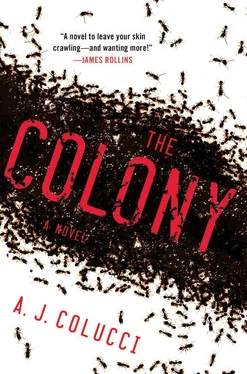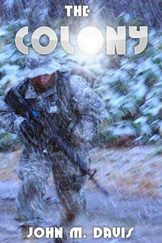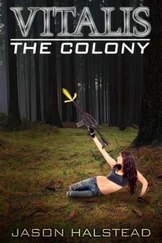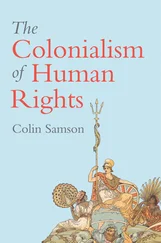“So where’s the oxygen come from?” she asked
“Vents. It’s highly pressurized. You’ll get used to it.”
Kendra had to admit the bunker air seemed to be doing wonders for her sinuses, but it dried up her contact lenses. She pulled out the bottle of saline from her pocket and squirted a few drops in her eyes.
The cart came to a gentle pause and the voice said, “State Room B-Seventeen.”
They were in front of a door marked with the same number. Cameron picked up her duffel bag and stretched his legs. He swiped his ID tag through a keypad and the door slid open noiselessly. He entered the dark room and Kendra followed, her eyes adjusting to the rough bedrock walls and tiny space that allowed only a small cot and dresser.
The room was a cave. Kendra hated caves. When she was six years old, her parents had brought her to Texas to save the very rare cave-dwelling arthropod Texella reddelli. It had recently been added to the U.S. endangered species list and was quickly becoming extinct due to an invasion of red fire ants. In a cavern of 100 percent humidity, Kendra’s nose had run like mad, but the arthropods preferred moisture and the darkest part of the cave, and therefore so did their predators. Kendra remembered walking toward the ant nest, squeezing her mother’s hand, as her father held up the lantern to the glistening rock wall. The red ants were everywhere, moving like rivers of blood through living veins. Six-year old Kendra had screamed.
“We’ll drop your things off here,” Cameron said and placed the bag on the cot.
Kendra left the room wondering how on earth she would ever sleep in such a confined space. She settled in the cart and it took off once again. There was a familiar tightening in her chest that squeezed her heart. The halls seemed to narrow. She closed her eyes and imagined a vast ocean—a meditation technique she’d learned from her mother—but the ocean waves kept pulling her under.
“Miss Hart?”
Kendra opened her eyes. They had stopped.
“You all right?” Cameron asked, with an amused smile.
Kendra nodded. They were facing a set of doors marked CONTROL CENTER.
“Is this another one of those tiny rooms?” she asked.
“Actually,” Cameron whispered in a throaty voice, “it’s enormous.”
KENDRA BLEW OUT AN astonished breath. The control center was another quarried cavern but the size of Grand Central Station. More fantastic than its scope was its shape. The four gargantuan walls were triangular and came to a point twenty stories above her head, as if she were inside the Great Pyramid.
It was a strange dichotomy of archaic and ultramodern. Despite its primitive walls, most of the room looked like a futuristic NASA control center. A sea of holographic computers, gleaming silver and bathed in ghostly blue light, stretched across the floor to a main command unit: a forty-foot tactical workstation packed with enough silicone to run the entire city of Manhattan. Overhead were circular offices clear as glass that seemed to be floating on air. At one end of the pyramid, long tables faced the gold seal of the United Nations and red velvet carpet flowed over the steps to the podium and stretched along a formal dais.
Kendra decided this was one of those secret locations the government hides from the public. Places like Roswell and Area-51 and Mount Weather. This was where all the important New Yorkers would flee in the event of a nuclear attack.
Only now the place was nearly empty, about a dozen men and women sitting quietly at a table off to the side. Kendra froze when she recognized two of them: New York mayor John Russo and Dr. Paul O’Keefe.
“You must be Professor Hart,” Russo said, squinting over his glasses. He extended a hand toward an empty seat near Paul. “Please, join us.”
Kendra struggled to recover. Six hours ago, she was counting ants in the Southwestern desert and now she was standing in an underground bomb shelter with the mayor of New York City and her ex-husband.
She feigned a smile, walked to the seat next to Paul and sat down. He didn’t look at her but leaned back casually in his chair, his eyes fixed on the mayor. He was wearing a lab coat with an ID tag clipped to his pocket. It was the same familiar etching in her dreams: the dark hair, graceful manner and the liquid chestnut eyes that sent shock waves through her body. The beard was new, and made him only more attractive. His left hand, masculine with long, gentle fingers, was wrapped around the back of his neck and Kendra noticed he still wore his wedding ring.
Paul was obviously avoiding her gaze, but she could tell he was beginning to crack and finally, without moving a muscle, his eyes shifted to her face.
She shot him a look that could freeze hell, but he only smiled.
Agent Cameron sat down in a seat next to Russo.
“Seems we’re all present,” the mayor began. “So let’s get started.”
Kendra’s mouth had dried to sandpaper. There were small pitchers of water on the table and she filled a glass in front of her.
Russo introduced his eight municipal staff members; Kendra barely caught their names, but she was impressed by those present from Washington, most of whom she vaguely recognized. White House Chief Counsel George Bennington was accompanied by three members of the National Security Council, who were somber and silent during the introductions.
The mayor concluded, “And this is Paul O’Keefe, head of entomology at the Natural History Museum, and his associate, Kendra Hart.”
Kendra’s fist tightened around the water glass.
“The reason I’ve called today’s meeting in this bunker will become clear momentarily. I expect other colleagues will soon be joining us, but for now we’re trying to keep this thing quiet. What you hear today may be shocking, but nothing leaves this room. The last thing we need is a panic on our hands.”
There were hesitant looks among the municipal employees, but the Washington group remained stoic. Kendra was having trouble concentrating. She took a long drink of water and tried to focus on the mayor’s words.
“According to army intelligence,” Russo declared, “a deadly new species of ant has created huge colonies under our streets and may threaten the very survival of New York City.”
Kendra snorted, choking on water. Her laughing eyes darted around the table, waiting for someone to say “just kidding.”
The mayor wasn’t amused.
Pat Dempsey, the burly Irish sanitation director, chuckled too. “Well, you have to admit, John, that sounds a little sci-fi. Why don’t we just shoot them all with ray guns?”
“Pat, you saw what they did to your men,” Russo said with a scowl. “I want you all to listen to Paul O’Keefe. He knows more about ants than anyone on the planet.”
Paul rose from his seat and walked to a podium, as Kendra’s eyes followed the full length of him. He hit a few buttons and a theater-sized screen floated down from overhead and began running a silent film clip. Two ants, projected to the size of elephants, were butting heads over a dead grasshopper. The crowd around the table was instantly alert.
“As vital as they are to the environment,” Paul said with authority, “certain species of ants have been a threat to the health and safety of our country for nearly a century. The worst of these is the imported red fire ant.” Then Paul said something that really took Kendra by surprise. “Professor Hart is really the fire ant expert. I’m sure she’d be glad to give us a brief overview.”
Now everyone was staring at Kendra. She cleared her throat and accepted the challenge. Onscreen a queen fire ant was being tended by a battalion of nurser ants. “The fire ant queen,” Kendra began. “She lays thousands of eggs a day and reproduces other queens through cloning, making an exact replica of herself. Each year, five million Americans are stung by fire ants, which can cause injuries ranging from a painful rash to anaphylactic shock and even death. For nearly a century, they’ve been steadily moving north and the infestation count is now six-hundred million acres. The annual cost to this country is over twelve billion dollars in treatment, loss of crops, livestock and damaged machinery. I suppose it’s lucky for humans the main diet of the fire ant is insects and small mammals.”
Читать дальше












